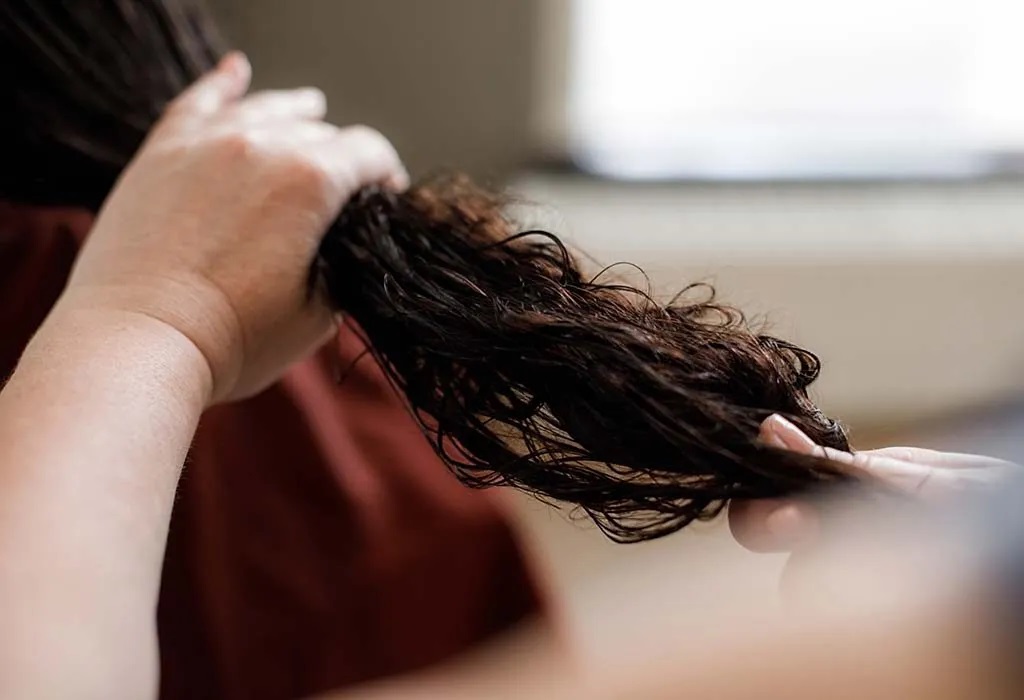
Why Does My Hair Curl At The End?
Curly hair makes you look good, especially if it’s your natural hair. But if it looks fake or strange, it can make you look not so good.
Your hair might curl at the ends for various reasons, and in this article, we’ll explore why this happens and how to manage it.
Let’s dive in…
Why Does My Hair Curl At The End?
There are several key reasons why your hair might curl at the ends, and understanding them can help you address this issue. Let’s examine these causes in detail:
- Weight: The ends of your hair are the oldest and often lighter than the rest of your hair, making them prone to curling. This is due to the damage, dehydration, and wear they experience over time.
- Length: Hair that reaches shoulder length can rub against your shoulders, leading to friction that causes curls.
- Stress: High stress levels can have physical effects on your body, including your hair. It can lead to thinner hair, severe hair loss, and as a result, unwanted curls.
- Genetics: While not a primary cause, genetics play a role in determining your hair’s keratin structure, which affects its shape and texture.
- Hormonal Fluctuations and Pregnancy: Hormonal imbalances, often seen during pregnancy, can lead to changes in your hair, including thinning, hair loss, and curls at the ends. Consulting an endocrinologist can help in managing these changes.
Understanding these factors can guide you in finding suitable solutions to manage unwanted curls at the ends of your hair.
Your hair might curl at the ends for several reasons related to your lifestyle and environmental factors. Here’s a deeper look into these causes:
- Diet: A balanced diet rich in nutrients is crucial for healthy hair. If your diet lacks essential nutrients, it can lead to hair loss, thinning, and eventually curls at the ends of your hair.
- Climate Change: The climate significantly impacts your hair’s texture and shape. Dry climates can cause frizz and split ends, while humid climates can make straight hair wavy and curly hair even curlier.
- Hair Styling Treatments: Hair can suffer from styling treatments like bleaching, coloring, and keratin treatments. These can lead to severe hair loss, frizz, dryness, split ends, and curls at the ends.
- Hair Care Products: While quality hair care products can improve hair health, using products not suited for your hair type can damage it. For instance, using products designed for curly hair on straight or wavy hair can lead to unwanted curls at the ends.
It’s important to consider these factors and adjust your hair care routine accordingly to manage and prevent unwanted curls at the ends of your hair.
How To Stop My Hair From Curling At The Ends?
To manage and prevent unwanted curls at the ends of your hair, adopting a proper hair care routine is essential. Here are some effective strategies:
- Regular Hair Trimming: Trimming your hair four to five times a year helps eliminate split ends, promoting healthier, faster-growing, and stronger hair.
- Moisturizing and Heat Protection: If straight hair curls at the ends, it might be due to a lack of moisture. Regularly moisturizing, especially for those who frequently use heat styling tools, is crucial. Applying a moisturizer at least once a week and deep conditioning weekly can significantly prevent hair damage and curling at the ends. Also, using heat protectant products is vital to shield hair from heat and UV damage.
- Using a Silk Pillowcase: Silk or satin pillowcases help prevent hair breakage, damage, and friction. Unlike cotton pillowcases, they don’t absorb moisture from your hair, making them an excellent choice for hair protection during sleep.
- Appropriate Hair Care Regimen: Regular and proper hair care is key to maintaining healthy hair. Choose the right hair care products suitable for your hair type and minimize the use of heat styling tools like straighteners, dryers, and curlers. Additionally, washing your hair periodically helps prevent it from becoming dry.
Implementing these practices can help you maintain healthy hair and minimize the chances of developing unwanted curls at the ends.
Conclusion
In conclusion, we’ve reached the end of our discussion on why hair curls at the ends and how to manage it. I hope this information has been helpful and provided clear answers to your concerns. Remember, patience is key. By consistently applying these preventive measures, you should start seeing positive results soon. Daily attention to these small yet significant aspects of hair care can lead to the best and most effective outcomes for your hair health.
